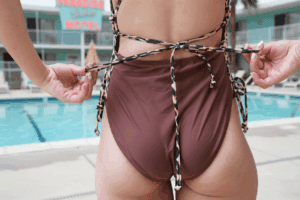Shark nets are destructive to other marine life which pose no threat to bathers.

Since last Friday, drumlines have begun to replace some shark nets at all eThekwini beaches, reports Berea Mail.
The Sharks Board’s head of operations, Greg Thompson, said shark nets had been very effective in reducing the risk of shark attacks, but there was an environmental cost.
Not only do the nets catch potentially dangerous sharks, but they also catch certain shark species that pose no threat to bathers, as well as various species of dolphin, whale, ray and turtle and, occasionally, large bony fish.
ALSO READ: Man swims to Seal Island through shark-infested waters
“The Sharks Board is continually seeking ways of reducing catches without compromising the safety of bathers. The deployment of drumlines in conjunction with the nets is one such initiative,” he said, adding that in 2007, the board replaced nearly half of the existing shark nets with drumlines at 20 protected beaches between Hibberdene and Port Edward, and more recently at all five protected beaches between Zinkwazi and Ballito.
The drumline rollout will replace some of the nets at all the eThekwini beaches between Westbrook and Umgababa.
A drumline consists of a single large baited hook suspended from an anchored float and forms an alternative method of fishing for potentially dangerous sharks.
Drumlines, which have been in use in the bather protection program of Queensland, Australia, since 1962, are far more selective than nets in terms of their catch. Both shark nets and drumlines have an excellent safety record where they are in use though neither provide absolute protection from shark attacks. Only a physical enclosure can achieve that, and the construction of such enclosures at surf beaches is impractical.
“Drumlines have proved invaluable in providing protection against shark-inflicted injury along the KZN coast, catching potentially dangerous sharks, but with very little by-catch (the catch of other animals). Not only is the by-catch of dolphins, rays, and turtles greatly reduced but so too is that of certain shark species that pose little threat to bathers, such as the spotted ragged-tooth shark and the spinner shark,” said Thompson.
The public is reminded that drumlines constitute life-protecting equipment and are the property of the Sharks Board. Their introduction is an initiative aimed solely at reducing the environmental impact associated with the provision of safe bathing.
Thompson emphasised that bather protection remains the priority, and appealed to the public not to tamper with the drumline equipment, and to report the presence of any displaced shark safety gear found along the KZN coast.
For more news your way, download The Citizen’s app for iOS and Android.






